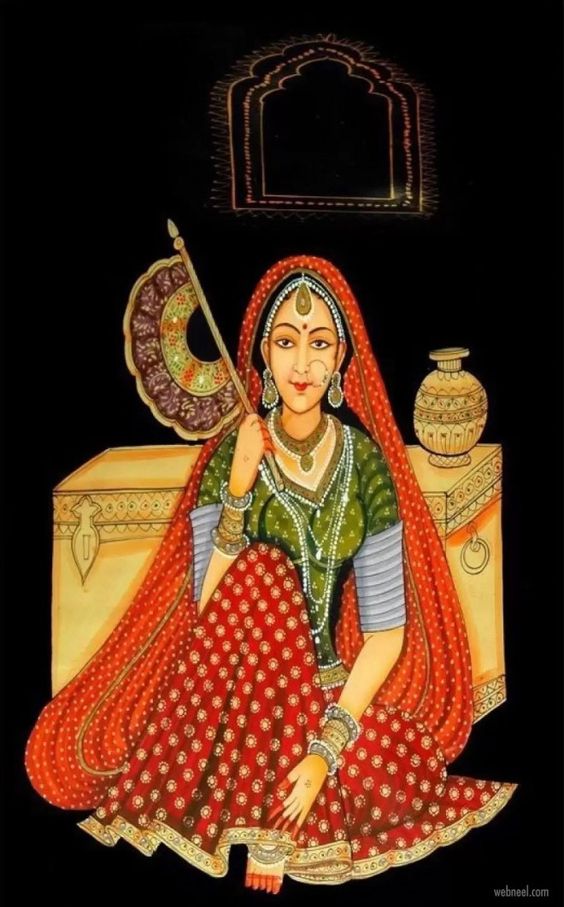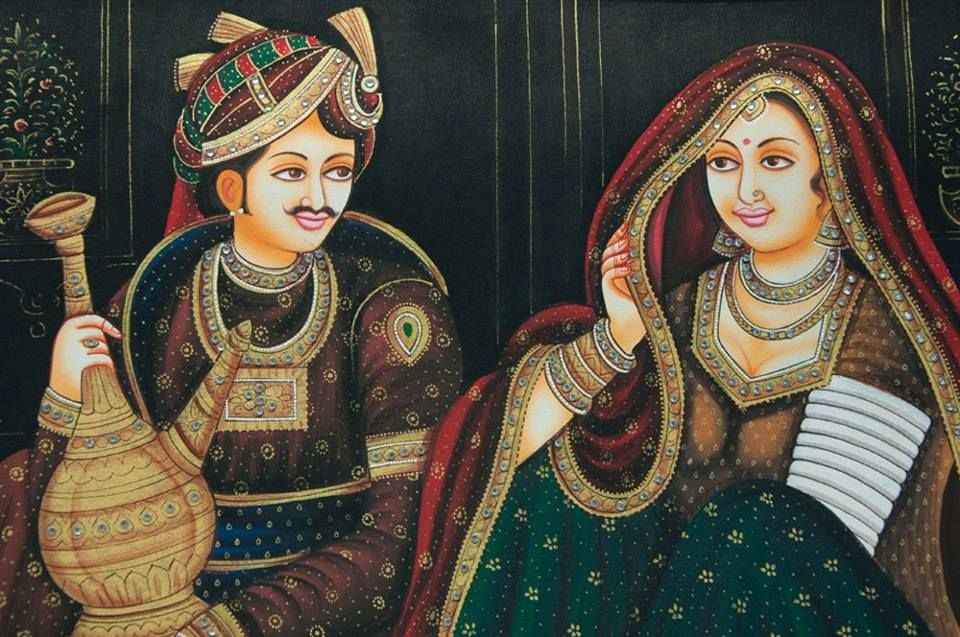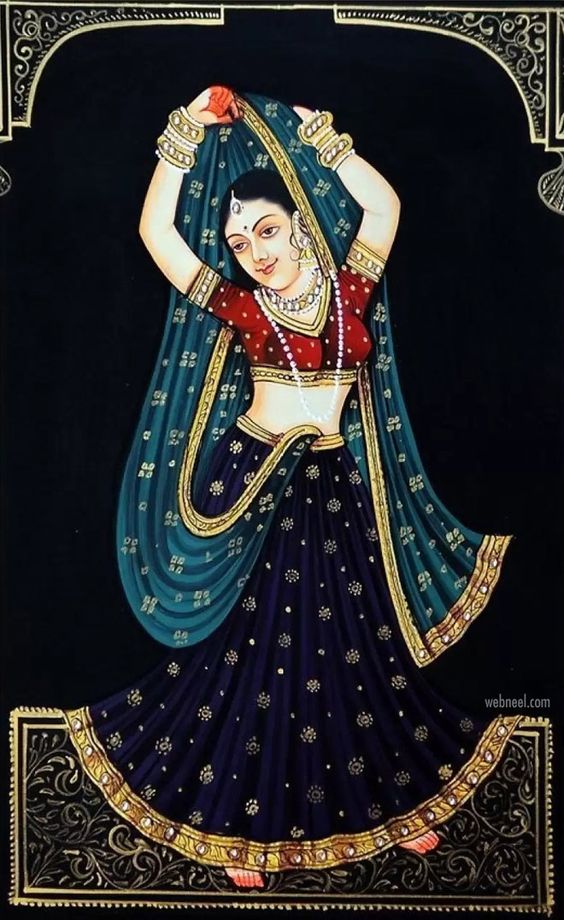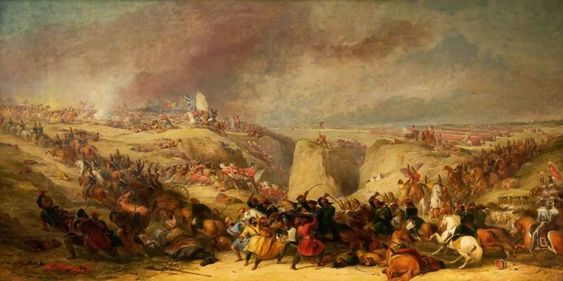

Chholi… A character in opera ‘Doday Jo Moat’ written by Shaikh Ayaz, which reflects the wisdom and inspiration
By Noor Ahmed Janjhi
Power is a blind horse that always runs ambitiously. Endless race for has been trampling humanity along with other diversity of nature. Mostly it is thirsty of human blood, which it calls or makes ‘enemy’. The game of bloodshed is going on earth since centuries. Human clothes dipped in blood are a great proof of that bloody play. It has destroyed innumerable homes, villages, towns and countries to satiate greed of power.
In Soomra dynasty of Sindh Tug of war for power has played havoc not only with Soomra but also with people of Sindh. Sindh had lost much more and shrunk after the fall of the dynasty.
Soomra rule came to an end with the defeat to Dodo and his troops in the Battle of Vigeh Kot. Shaikh Ayaz has tried to depict the leaf of history by writing an opera ‘Doday Jo Moat’. He created the characters reflecting different aspects of human behavior. The power culture is a complicated culture. Sometimes people cannot leave it and sometime power does not leave people. Transformation of power evolves through human endeavor in the light of vast context of nature.
Shaikh Ayaz has beautifully assigned the role to Chholi, a side character along with the characters of Baghi, Dodo and Chanesar. Although, Chholi does not belong to Sooomra family yet it was the part of the family because of its acumen and attachment. Suhni of Bhittai is a sublime character. However, Shalli of Amar Jaleel and Chholi of Shaikh Ayaz reflect a diversified expression of human behavior. She is keep of Chanesar and entertains Chanesar with wine and singing. During the entertainment, she shares points of wisdom. His dialogue starts as follows:
جيئو جيئو ، پيئو پيئو
ڇنن ڇنن، ڇن ڇن…..
ڪاري رات اُٻهرو ليئو
ڇنن ڇنن، ڇن ڇن…..
ٽمڪي نيٺ وسامي ڏيئو
ڇنن ڇنن، ڇن ڇن…..
(Live long and drink plentiful; sounds of gunghroo; dark night and hasty peep; sound of ghunghroo. Lamp succumbs at last; sound of ghunghroo)

Chholi talks about dark night and the light of lamp. She thinks it as temporary phenomena. Muhammad Ibrahim Joyo has commented on the character of Chholi in the preface of the book. He writes, “Chholi Kumbhar is depicted as a symbol of Sindh, and the civilization of Sindh that has lost her originality. She returns back towards its origin by observing destabilization of every of her spiritual value.” Such wonder can be seen in the behavior of Chholi. She responds to Chanesar when the latter discusses utility, usefulness and uselessness of life. She says:
سائين آئون ڪُنڀارڻ آهيان
هونئن ته ڪائي ڏاهي ناهيان
پر مون هڪڙي ڳالهه ڏٺي آ
جندڙي مون کي پوءِ به مٺي آ
آويءَ ۾ ڪيئن ٿانو پچن ٿا
۽ ڪيئن تن تي چٽ اچن ٿا
تن ۾ ڪوئي ڀيلو آهي
ٿوري چوٽ انهي کي ڊاهي
ها پر جيڪو پڪو آهي
تنهن جي پڪ به ڪنهن کي ناهي
گهڙا ڏٺا مون ڪيئي ڪورا
گهڙا منجيءَ تان ڪرندي ڀورا
ها پر پوءِ به گهڙولي تن تي
ٻاجهارن جي ٻولي تن تي
ڪيڏي پياري لڳندي آهي
۽ مٽيءَ جي پيالي ڇا هي !
پر جي اُن ۾ مڌ ڀريل آ
ولهه ۾ ساري رات ٺريل آ
پوئين پهر انهيءَ جي سُرڪي
پيتي آ جنهن مُرڪي مُرڪي
اُن جي عمر سجائي آهي
مٽي هونئن اجائي آهي
مڌ وڏي معنى آ سائين
نه ته مٽيءَ ۾ ڇا آ سائين
(I am a just a potter my sir. I have no great wisdom. However, I have observed something. I love life too. How the pots are baked by burning in kiln and how there reflect the motifs on them! Some of them are less baked so it is vulnerable to slight blows. The full baked pitcher is not even certain survivor. I have observed many pitchers to be toppled from the pitcher table. Despite that destruction the songs of gharoli composed by kind poets sounds lovely – And what about the bowl of clay? If it is filled with wine and the night is covered by dew and feels cold. Anyone taking smilingly a sip from the bowl in the last moments of the night makes his life useful. Wine contains great meaning otherwise the clay is of no use. Nothing is in clay, Saeen)
She gives less value to clay and regards wine filled in the clay bowl as important. She is unaware of the hosting context of clay bowl otherwise wine is useless. Chanesar asks her for another song and she starts singings as:
رهڻو آهي واس وڃي
هونئن ته گُلڙا روز ڇڻن ٿا
هيڪر ٿي هُٻڪار هوا ۾،
سارا ڀو جا ڀول ڀڃي
هونئن ته گُلڙا روز ڇڻن ٿا
ڀورا وڻ وڻ واسي ويندين
جي تون منهنجي ڳالهه مڃي
هونئن ته گُلڙا روز ڇڻن ٿا
(The flowers fall daily. Only fragrance survives. It makes the air fragrant and cracks all the thunders of fear. The flowers fall daily. You may make every tree fragrant O naïve if you follow me otherwise flowers fall daily)

She observes falling flowers and their fragrance pushes away all of the thunders of horror and terror. She resists strongly when Chanesar pushes her towards Salar Khan, commanding officer of Sultanate army. She falls on the feet of Dodo and says by sobbing as:
جيئين شال سدائين دودا
او سونهارا سائين دودا
سُر سپنو آ مون گڏجي ڳايو
هي سارو سنسار سمايو
سُر جي نيريءَ سندرتا ۾
پيڙهيءَ پيڙهيءَ جي پيڙا ۾
ڪائي ٿهر اچي ويئي مون سان
سُک جي لهر اچي ويئي مون سان
مان گنگهروءَ جي ڇم ڇم آهيان
جي ڌرتيءَ تي پير نچايان
ڇن ڇن ڪن تارن سڪا
ڪجهه به نه آهن سونا سڪا
جن تي پنهنجو پاڻ وڪيو مون
ڀوري ٿي جو ڀاڻ وڪيو مون
تنهن تي چنڊ جهڪي ايندو هو
سارو منڊ جهڪي ايندو هو
منهنجو ڪوئي اگهه نه آهي
ها ، جي ڪوئي مون کي چاهي
پنهنجو ٻُڪ ڪنول جيئن آڻي
موتي هاري، مونکي ماڻي
ملڪ اڳيان ڪو موتي ڇاهي
آليءَ اک جو اگهه نه آهي
پر مون پنهنجو قدر نه ڄاتو
هاءِ! چنيسر کي نه سُڃاتو
ڪهڙي جادوءَ ۾ جڙجي مون
ڪهڙ ي ڪانئر سان اڙجي مون
پنهنجي عمر گنوائي آهي
اڄ جو منهن تي ڇائي آهي
۽ مان انگ اگهاڙي آهيان
ڄڻ مان ڪا ڦُلواڙي آهيان
جنهن جا ڦول لتاڙيل آهن
ويجهيءَ ڇڪ اُجاڙيل آهن
تنهن جو ڪارڻ آئون ته آهيان
ڇو مون ڪونه سُڃاتو، ڇا هيان؟
ڌوڙ چنيسر سارو ڌوڪو
سونهريءَ ۾ سپ هيو ڪو
ڪوڙ هٿان جي ڪاج سري ٿو
تاج رڳو تاراج ڪري ٿو
جو به ڌُٻڻ تي پير ڌري ٿو
هيٺ وڃي ٿو نيٺ مري ٿو
ڪنهن به ڌُٻڻ ڳڙڪائي ناهي
دودا سائين ! اڄ هو ڪاهي
راتاهي لئه اچڻا آهن
اهڙا ٺاهه پيا هُو ٺاهن
(May you live long O Doda. O beautiful saeen Doda. I have sung the melody of dream together and accommodated the cosmos in it. There came in me the sufferings of the generations through the blue beauty of melodies. Some grace has emerged in me and emerged a wave of luxury. I am the tinkling sound of gunghroo. The coins of stars fall on me when I dance on earth. The golden coins are nothing to me. I did exchange myself against the golden coins as I was naïve. The moon lowered on me and all the system lowered over me. I am beyond to any price if someone does love me. By stretching his hands like a lotus flower, may throw pearls of love and may enjoy me. Pearls are useless against a country. The wet eye is beyond all pricing estimations but I did not recognize my actual value and could not recognize Chanesar. What magic bound me with a cowardice person and I have lost my time. Being cursed today, I am feeling without any dress as I might have been a flowery garden with trampled flowers. Someone has devastated those flowers in recent past. I am the cause of that devastation. Why I did not recognize myself? Damn Chanesar as he was a deception like a snake hidden in grass and straw. If something is achieved by deceiving then it is of no use and the crown destroys too. Any one puts feet on marsh, goes in it and succumbs to death. None has swallowed the marsh. The enemies are coming for night slaughter tonight O Doda saeen! They are preparing for such planning)
This dialogue reflects the return of Chholi. She becomes sad on the behavior of Chanesar and prays for Dodo. She says that she has sung the melodies of dreams and has accommodated the cosmos in the tunes of melodies. She also repents on her association with luxury and she declares it as deviation. She thinks the golden coins and tinkling of gunghroo useless and hates from offering herself against money. She moves ahead towards moon of love and feels honored in it. Every other thing feels trivial against love and affection. When a human being becomes familiar with love, then his inner becomes as a polished mirror reflecting a clear image. Love enables the soul to be moved on a loving talk and pearls ooze out of the eyes. The eyes become clear crystal to have the image of beloved. Weeping and giving belong to heart. A wet eye is beyond all price estimations and costs. The pearls equip eyelids when a true sentiment clicks in heart. Chholi feels repentance on being with Chanesar. She thinks the age spent with cowardice is of no use. Telling lies and being with false devastates a person. The crown and power gotten by deception and falsehood are useless. The sudden change in her behavior makes Dodo aware of the emerging scenario. He inspires his troops for fight and sends Chholi in the tent. She prays for success of Dodo as:
دودو توکي چنڊ لڳو هو
ڪنهن مانڊيءَ جو منڊ لڳو هو
تو سوچيو هو مان ڇولي هان
”اُن کي اُڀري ڪيئن پُڄان مان“
”چنڊ وجهي ٿو پرتان پاڇا،
ڏوران ڏيک ڏئي ٿو ڇا ڇا،
ها پر ڪيڏو پرتي آهي
اُن جي ويجهڙ وس ۾ ناهي
ڪيئن وئينءَ ڪنڌيءَ تي ڪاهي
اي ڇولي ! ڇاڇر ۾ ڇاهي؟
اڄ تون گدلي ميري آهين
چئو تون موٽي ڇا ٿي چاهين ؟
چنڊ پراهون ٿي ويو آهي
پويون پهر اچي ويو آهي
(You regarded Dodo as a moon. You regarded him as magical scene. You thought about being Chholi and how shall you access him. Moon looks beautiful from distance and shares her light from far away. One cannot make it near. O Chholi don’t remain at the bank of the sea. You have been dirty. What do you want by returning back? The moon is far away. It is the last moment of the night)
She seems Dodo as a magical scene and feels hurt by distancing from Dodo. She feels helpless and thinks herself dirty and she is amazed on her return. On the other hand Dodo gives drill to the army to fight till last drop of blood as the return is a curse for a soldier. The scene inspires Chholi and she comes out of fear and says:
هيءَ ڪنڌ ڪڪوريل آزادي
ماڻهوءَ ۾ موريل آزادي
ٿي پرکي پاڻ وهيڻن کي
ڇا هانءُ ڏئي ٿي هيڻن کي
تدبير ڏئي تقديرن کي
تقدير ڏئي تدبيرن کي
ڇا گوندر کي گرمائي ٿي
ٿي راڱا راڙ مچائي ٿي
۽ پير ڇڪي پنجوڙن ۾
ڇا گونجي ٿي گجگوڙن ۾
اي دودا ! توتان گهور وڃان
شل آئون به ڀو جا ڀول ڀڃان
(She says that the freedom ripens heads and it is in the inner self of human being. It testifies the people, claimants of self-reliance and it gives courage to weak people. It gives options to the luck and vice versa. It heats up the sufferings and makes a hue and cry. It pulls feet out of chains and it resonates among noises. I may sacrifice over you, O Doda and may break the thunders of fear)

To live freely is a natural desire of human being as well as other creatures. Head is for sacrifice in this regard. Freedom is nature that makes everything straight and correct. Man moves ahead with his potential. Fear weakens him and his ideology. Chholi wants to sacrifice over Dodo and comes out with the bag of arrows.
The second scene presents the scenario of defeat got by Soomra. Dodo is watching the dead bodies of his soldiers with gloomy eyes. Chholi brings a lamp with her and also makes wet the dried and blooded lips of Dodo. She bursts out in tears. Dodo is also sensing about the last moment. As the Dodo is breathing his last, she wipes the wet eyes and sings as:
هر روز پتنگا ڄرڪن ٿا
ڏس ڏيئي لاٽ اءُئين ئي آ
هڪ جوت ٻُجهي، ٻي جوت جلي
هر وقت جهروڪا جهرڪن ٿا
ڏس ڏيئي لاٽ اءُئين ئي آ
هر اوندهه م هر اوجهڙ ۾
ڪي ماڻهو مُرڪن مرڪن ٿا
ڏس ڏيئي لاٽ اءُئين ئي آ
ڏس ڏيئي لاٽ اءُئين ئي آ
(The moths fall daily in fire and the lamp’s flame remains alive. One fire is put off and the other is on. In this way the lamp is on forever. Some of the people smile in every darkness and deviation. The lamp is on with same fashion)
The character of Chholi reflects wisdom and inspiration. She takes water for thirsty Dodo and lamp for pushing the darkness. She sings immortality of life under the shade of death. Some people smile during untoward situations and the history smiles for those people proudly. The opera starts with the character of Chholi and ends with it. However there is a forgetting phase in her life and she returns back from it. As she comes out of the abyss of unawareness, she herself becomes the smile of history.
________________________
About the Author
 Noor Ahmed Janjhi is a senior educationist based in Desert District Tharparkar Sindh. He is author of several books in Sindhi and English language on folk literature including two poetry books.
Noor Ahmed Janjhi is a senior educationist based in Desert District Tharparkar Sindh. He is author of several books in Sindhi and English language on folk literature including two poetry books.